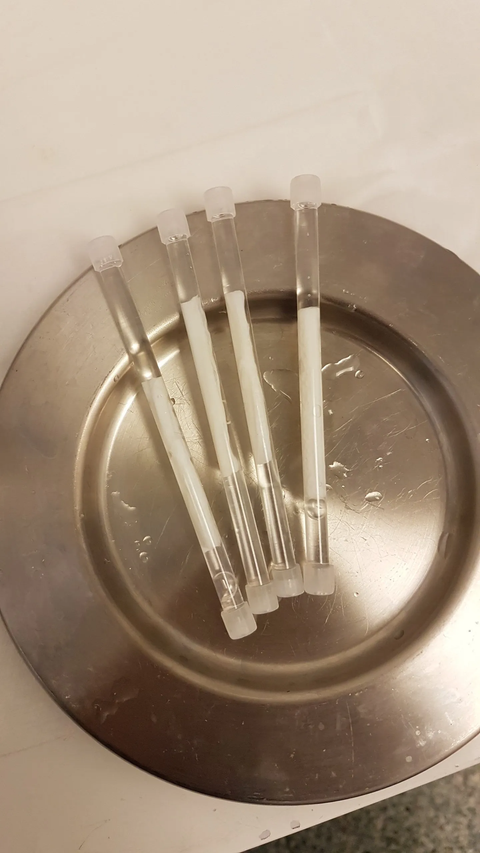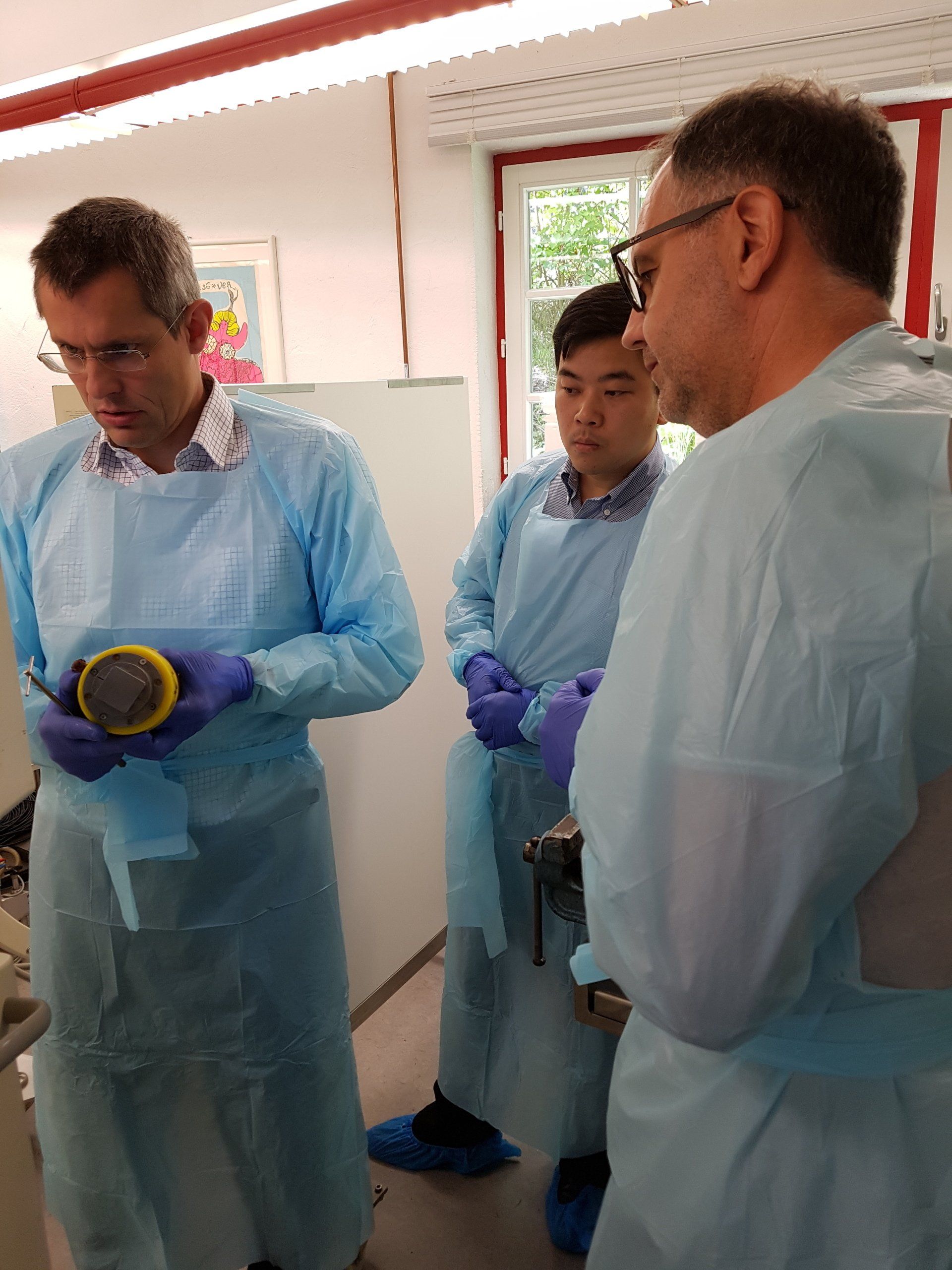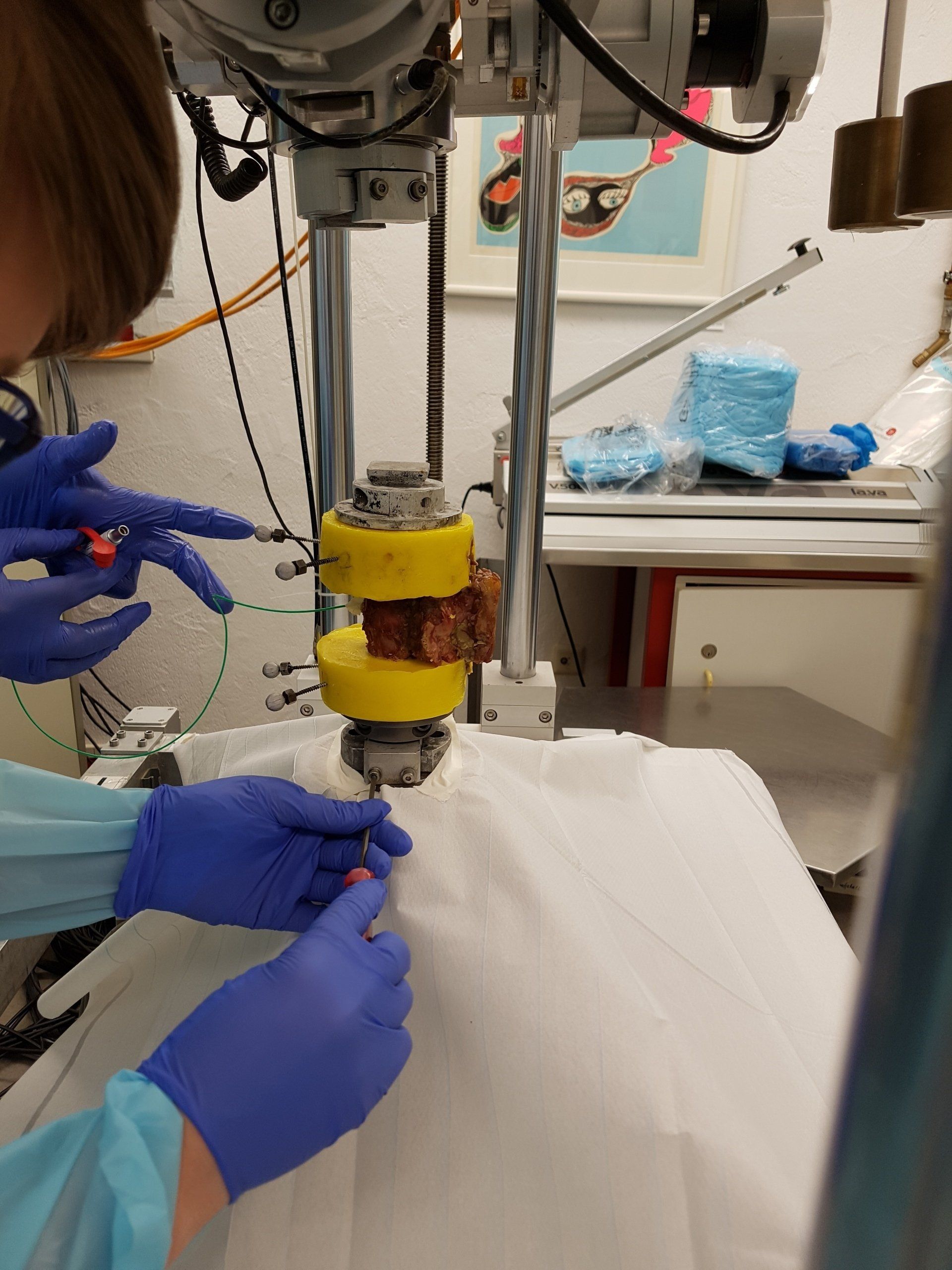RESTORE
The new therapy of spinal disc diseases
3D Spine Matrix Biotechnology has developed a nucleus restore system (“RESTORE”), a spinal disc nucleus replacement that can be used to restore spinal discs. In case of a herniated disc the most important task is to take the pain of the patient. Therefore, the height of the vertebral disc, the pressure conditions in the disc and the range of motion is restored. The superiority to artificial implants is the ability to ingest and release fluid like the natural nucleus and the biological material with high biocompatibility. Spinal disc replacements are alternative on spinal fusion, but still represent a radical treatment in cases when the disc is only partly damaged in case of a prolapse, where usually a nucleotomy is done. It is logical that a more physiological reconstruction of the disc leads to better long-term clinical outcome. Indication is a disc herniation with back and/or leg pain (radicular pain) and the indication for Nucleotomy.
How can RESTORE help patients?
Disc herniations are usually treated by decompression of the spinal nerves via a partial nucleotomy. As a consequence of reduced disc height, reduced intradiscal pressure and increased range of motion accelerated degeneration may occur. Nucleus replacement implants are intended to restore those values, but are associated with the risk of extrusion. The biomechanical study with human cadaver spine segments showed that a nucleus replacement implant (RESTORE) could prevent further disc herniation following discectomy treatment while restoring the biomechanical properties of an intact disc again if it is combined with an annulus closure device. Based on the results after implantation, it can be concluded that the combination of the novel nucleus replacement and the annulus closure device was able to restore the biomechanical properties of the intact disc. *
*Published in the European Spine Journal May 2020
This information is intended for healthcare professionals.



